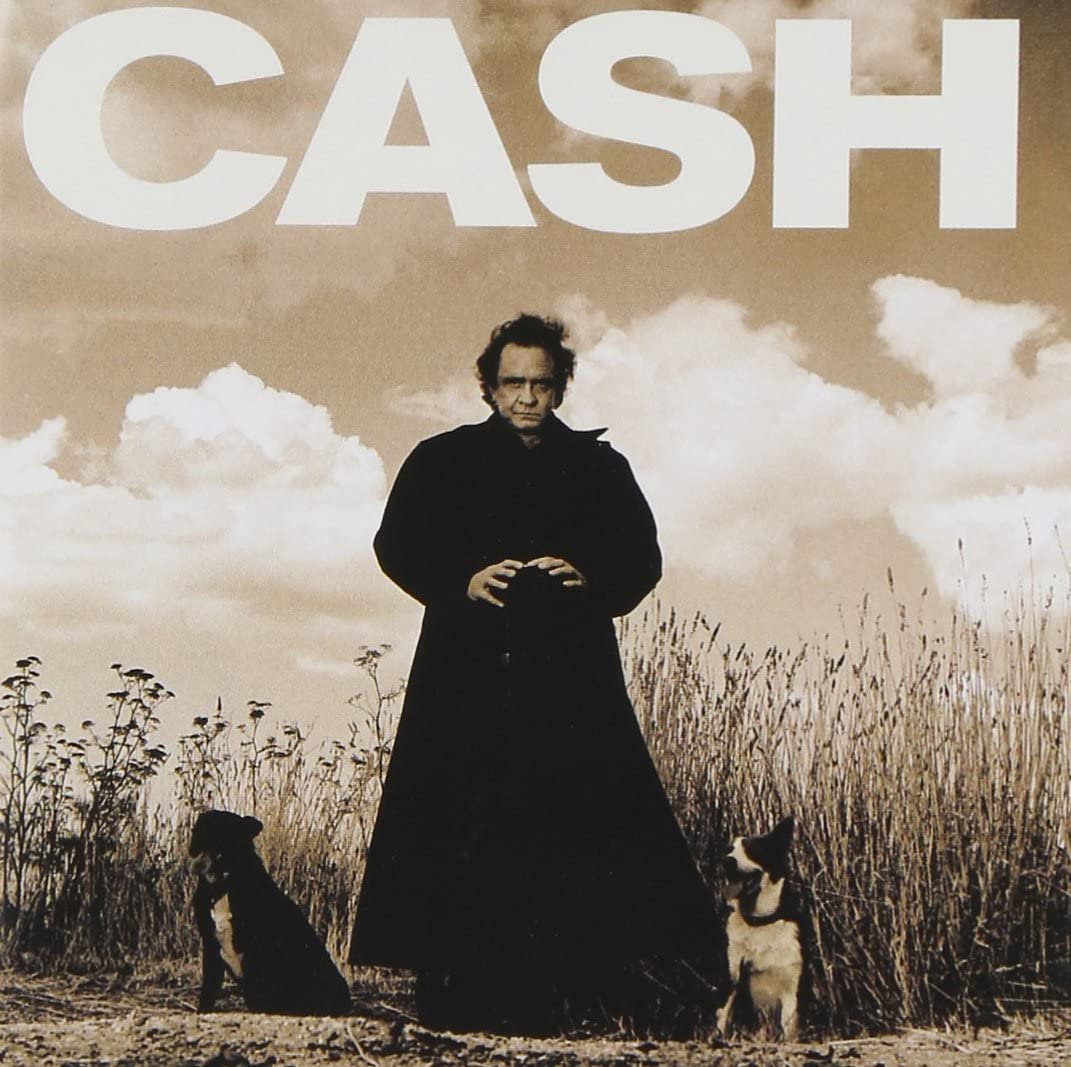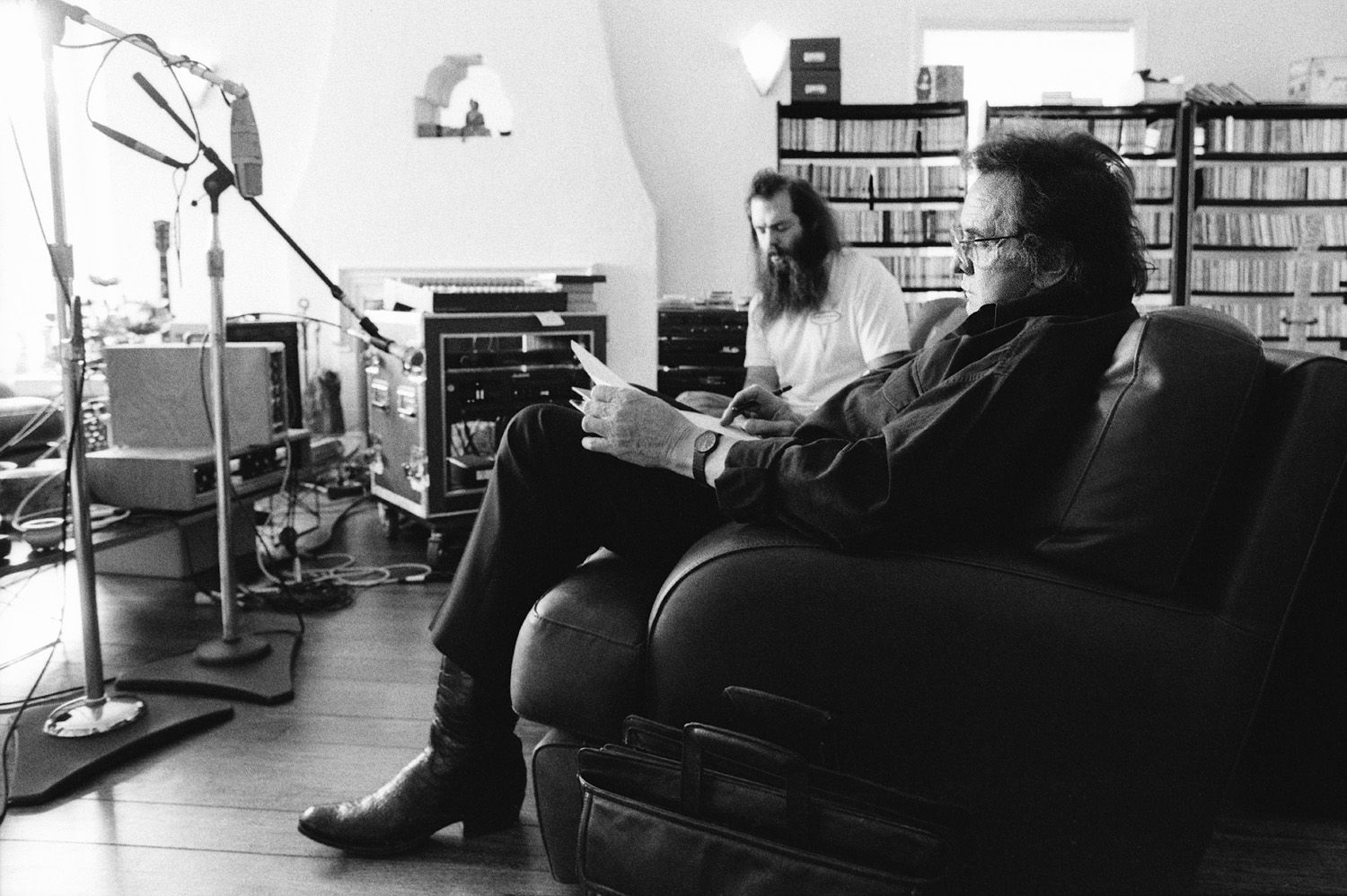Johnny Cash has undoubtedly been one of the most important and influential American artists in the history of music and despite being an exponent of a properly local music, country (ie as much of the most American there can be in music), has cleared the customs becoming famous even at latitudes not accustomed to that sound, a universal musician who played and made himself loved everywhere. A true outlaw that, however, in his very long career started in the mid-1950s has had ups and downs and ruinous commercial falls. The beginning of the 90’s was probably one of the most tragic periods of his life, especially outside the scenes, the malaise was then reflected on the artistic part making it practically sterile and in free fall. The last real successes in the eyes of the world had almost ten years, the triumphant tour with the three great outlaw friends of Texas: the Highwaymen (Willie Nelson, Kris Kristofferson and Waylon Jennings), in practice a “all-stars” of country music with three successful records and sold out everywhere but by the early 90’s had already begun to give signs of fatigue. His health then did not help Johnny: heart problems first and then teeth (an operation caused permanent damage to the facial nerves). In addition, Cash was suffering from diabetes, was affected by pneumonia and risked a great deal due to misdiagnosed infections. I mean, the ’90s had presented him with the bill of a life lived to the fullest. Nobody cared more about Johnny Cash musician and artist, the music business is ruthless and tends to forget quickly. But just in those years there was a producer who was looking for something new, a disgraced artist to be reborn to show the world his magic. The producer in question was Rick Rubin, looking like a fine-sounding guru, deus ex-machina of the successes of the Red Hot Chili Peppers, Slayer, Danzig, Run DMC and, later, of the Metallica that were self-destructing and returned on the crest of the wave. A bit of what he did with Cash but with very different results. Rubin convinced Johnny to sign for his own label, Def American Recordings, and expounded his plan to raise Man in Black: extract from his voice and his guitar the true essence of Johnny Cash, a country acoustic only six strings and voice, no artifice, no additions, a gaunt open-heart confession. Convinced as it was that Cash’s uvula made the difference on its own, that dark and heavy timbre that had made him famous. The recordings took place almost live in the living room of the artist’s home, with only his guitar to accompany him, a choice however brave, since it appeared as the last resort of one of the most beloved musicians ever in the United States, ever since, with a “crazy choice”, had recorded a record from Folsom prison, printing one of the most beautiful and influential live albums of all time in 1968. The songs recorded in those sessions were many and on that first record called only American Recordings finished thirteen, of which two taken from a concert that Cash held at the Viper Room, at the time owned by actor Johnny Depp, in Los Angeles: Tennessee Stud and The Man Who Couldn’t Cry. The songs chosen were songs by Cash but also many covers suggested by Rubin who wanted to update the name of the singer making him perform songs by artists on the crest of the wave and famous among the young people of the time. The two of them, even in this case, did not lack the courage, the flop with operations of this type is always around the corner. To understand the soul of this work that defines a masterpiece seems almost reductive, just listen to the first piece, Delia’s Gone, a piece of Cash so minimal, dry, sad and melancholy. The voice of the good Johnny, warm and bewitching, enters under skin and drags us in this intense journey of thirteen wonderful pieces performed in a frank and sincere way by a man who had nothing to lose. Among the best pieces there are definitely the cover of the english artist Nick Lowe, The Beast in Me, which seemed written specifically for him and then makes even more honor to the work of Rick Rubin, a true genius behind the console. A dark track that, like the rest of the album, gives an aura of religious confession, amplified by the wonderful cover chosen for the occasion. Cash had taken that photo on a holiday in Australia and appears in his black dress of ordinance (was it or was it not the man in black par excellence?), long, almost like a shepherd of souls, a field of wild herbs and at his hips two dogs, one black and one white spotted. Almost to make us see his two souls as a sinner and saint. Essential and effective, a bit like the whole disk. Another real jewel is Thirteen, which Glenn Danzig wrote especially for the american musician, an almost religious ballad, an almost spoken confession that excites every listening more. Why Me Lord remains on the religious theme taking a success of his friend Kristofferson and, don’t take it personally Kris, gives him a powerful soul that perhaps not even the original had, while the cover of Bird on a Wire by Leonard Cohen, battle with the original on which is the most beautiful and intense. And here is the real magic of this record and of the lucky successors: take already wonderful songs and give them that aura of sacred immortality, almost to wonder if they were the original actually cover of these thin, dry and brilliant versions. Executions that expose our soul in listening and make the goose bumps. The disc chiselled by Rick Rubin was released on April 26, 1994 and was immediately a success, as resounding as perhaps unexpected, especially for the criticism that incensed it as the best and most sincere work of Johnny Cash, thanking the “holy producer” for restoring an american icon to its former glory. The sales success was of the same tenor, at the end of 1994 he got numerous awards and was included in the years of law as one of the best albums of all time: not bad for an artist given as commercially dead for years. Rubin’s magic touch will be repeated for three more chapters with Cash still alive: Unchained (1996), American III: Solitary Man (2000) and American IV: The Man Comes Around (2002), which contain incredible songs and covers that, as mentioned above, will obscure the original over the years. After the death of Johnny Cash on September 12, 2003, a few months after the death of his beloved June, two more posthumous albums were released: American V: A Hundred Highways (2006) and American VI: Ain’t No Grave (2010). The recordings, however, were many and the covers ranged in repertoires of artists of different backgrounds, in fact this series, now considered a world heritage site for its lyrical and musical importance, also came out an amazing box called Unearthed (2003) just after his death, which collected unused songs or alternative versions of the first four editions and also gospel songs taught to Cash by his mother when he was young and a greatest hits of the other American chapters. I mean, one jewel after another. The void left by the death of Johnny Cash in country music but not only is still huge, a musician of such a human and artistic depth that will hardly ever be replaced in the hearts and souls of fans. This work and the following ones, which we strongly advise you to find out if you do not already know, help to remember the greatness of an artist never quite celebrated. Since this was the first one deserves an honorable mention but it was only the appetizer of a lucullian lunch of author music that in our opinion did not have a peak but it was a masterpiece from the first to the last song. Thanks for everything Man in Black.
Good listening,
Trex Willer
you can find original italian article at this link : https://www.trexroads.com/american-recordings-johnny-cash-1994-2/ )



